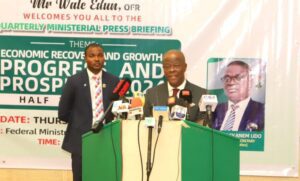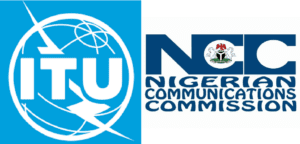


Fidelity Bank grows profit by 131.5% in FY 2023
…Declares a final dividend of 60kobo per share
Leading financial institution, Fidelity Bank Plc, has released its 2023 full year Audited Financial Statements, reporting a 131.5 percent growth in Profit Before Tax to N 124,26 billion.
According to the results, which was issued to the Nigerian Exchange (NGX) today, the bank grew Gross Earnings by 64.9 percent YoY to N555.83 billion, driven by 81.6 percent growth in Net interest income which increased from N152.7billion to N277.37 billion. This led to a Profit After Tax of N99.45 billion representing a 112.9 percent annual growth.
Commenting on the Bank’s commendable performance, Dr. Nneka Onyeali-Ikpe,OON, MD/CEO of Fidelity Bank Plc said, “We closed the financial year with strong double-digit growth across key income and balance-sheet lines. Our performance in 2023 is an attestation of our capacity to deliver superior returns to shareholders despite the difficulties in our operating environment. Profit before tax grew by 131.5 percent to N124.3bn from N53.7bn in 2022FY, leading to an increase in Return on Average Equity (RoAE) of 26.5 percent from 15.6 percent in 2022FY.”
A review of the financial performance showed that the bank grew Net interest income by 81.6 percent to N277.4bn driven by a 55.5 percent increase in interest income, thus reflecting a steady rise in asset yield throughout the year. The average funding cost dropped by 20bps to 4.4 percent due to increased low-cost funds that grew from 83.6 percent in 2022FY to 97.4 percent in 2023. The combination of higher asset yield and lower funding cost led to an increase in Net Interest Margin (NIM) of 8.1 percent from 6.3 percent in 2022FY.
Similarly, Total Customer Deposits crossed the N4tn mark as deposits grew by 55.6 percent from N2.6tn in 2022FY. The increase was driven by 81.1 percent growth in low-cost funds.
Despite the challenging operating environment, the bank reaffirmed its devotion to helping individuals grow, inspiring businesses to thrive and empowering economies to prosper by increasing Net Loans & Advances to N3.1tn from N2.1tn in 2022FY.
Despite the growth in its loan portfolio, Regulatory Ratios were maintained well above the required thresholds, with liquidity ratio at 45.3 percent from 39.6 percent in 2022FY and capital adequacy ratio (CAR) at 16.2 percent compared to the minimum requirement of 15.0 percent.
“We recognise the changing dynamics in the Nigerian banking space and the need to monitor and proactively manage evolving risks. The proposed final dividend of 60 kobo per share reflects our commitment to strong value creation and returns to our shareholders,” explained Onyeali-Ikpe.
Fidelity Bank has consistently paid dividends since 2006. With the proposed final dividend of 60 kobo per share, Fidelity Bank would be paying investors a total dividend of 85 kobo per share for the reporting period, a 70.0 percent increase compared to the 50 kobo per share paid to its shareholders in the previous year.
Ranked as one of the best banks in Nigeria, Fidelity Bank is a full-fledged customer commercial bank with over 8.3 million customers serviced across its 251 business offices in Nigeria and the United Kingdom as well as on digital banking channels.
The bank has won multiple local and international awards including the Export Finance Bank of the Year at the 2023 BusinessDay Banks and Other Financial Institutions (BAFI) Awards, the Best Payment Solution Provider Nigeria 2023 and Best SME Bank Nigeria 2022 by the Global Banking and Finance Awards; Best Bank for SMEs in Nigeria by the Euromoney Awards for Excellence 2023; and Best Domestic Private Bank in Nigeria by the Euromoney Global Private Banking Awards 2023.



